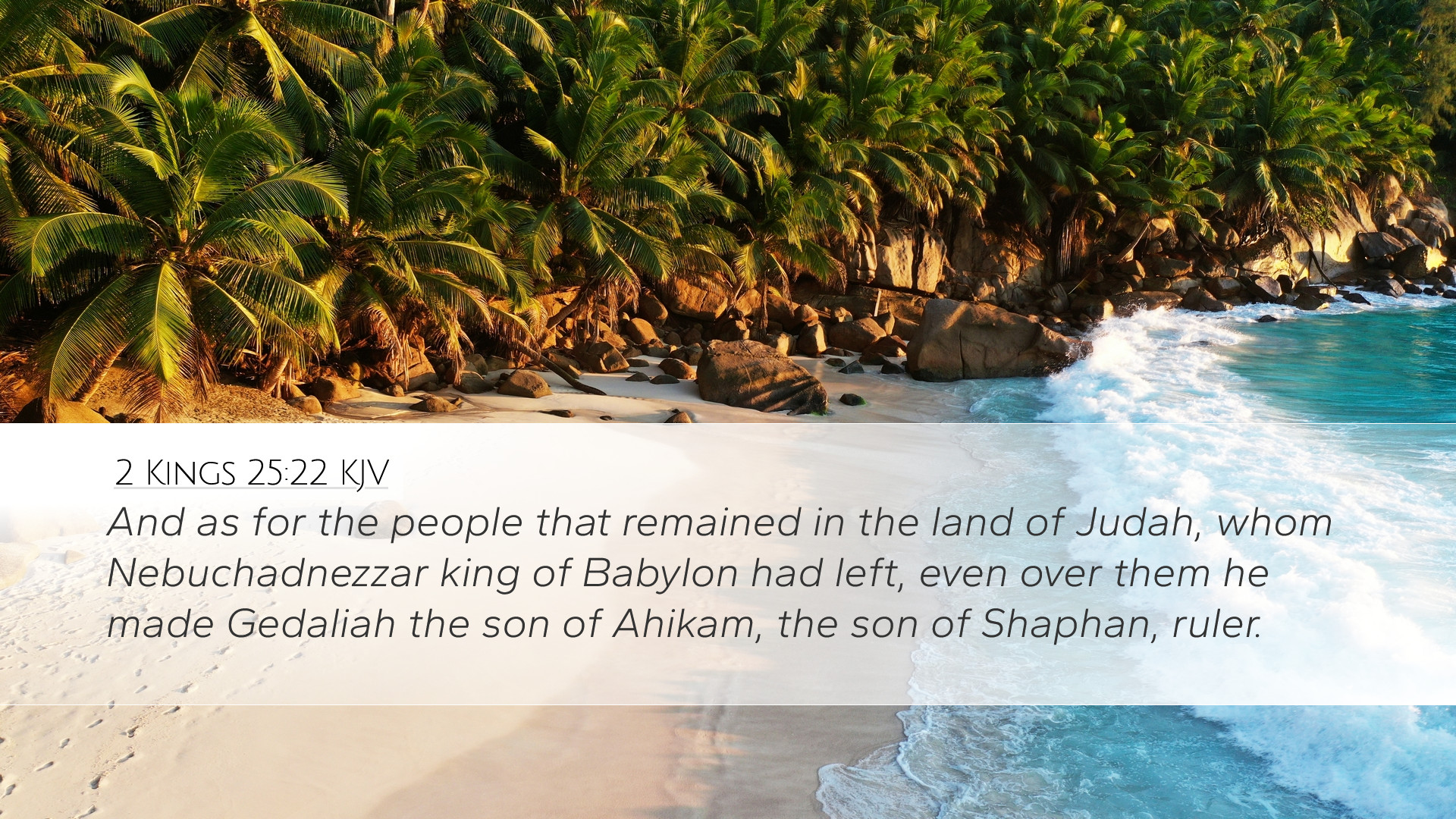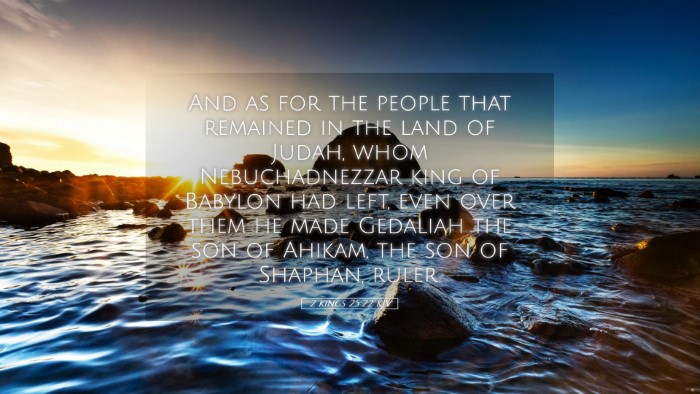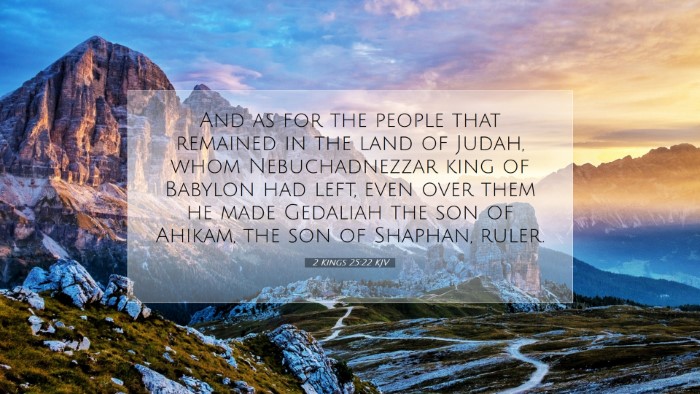Commentary on 2 Kings 25:22
Verse Overview:
2 Kings 25:22 states, "And as for the people who were left in the land, whom Nebuchadnezzar king of Babylon had left, he appointed Gedaliah the son of Ahikam, the son of Shaphan, as governor." This verse occurs at a critical juncture in the history of Israel, detailing the aftermath of the Babylonian conquest and highlighting significant characters and thematic elements of governance, exile, and hope.
Contextual Background
Historical Context:
After the fall of Jerusalem, the people of Israel faced unprecedented upheaval. The Babylonians under Nebuchadnezzar had besieged the city, leading to devastating consequences for the inhabitants of Judah.
The Governance of Gedaliah:
Gedaliah's appointment as governor reflects a strategic move by the Babylonian empire. His position serves to maintain order among the remnant of the people left in Judah while also ensuring loyalty to Babylonian rule.
Theological Insights
God’s Sovereignty:
This appointment exemplifies God's sovereign control over the affairs of nations and individuals. Throughout scripture, there is a consistent theme that God can use even foreign rulers to fulfill His purposes and maintain a remnant for Himself.
Insights from Commentators:
-
Matthew Henry:
Henry notes the importance of Gedaliah's name, emphasizing that the name “Ahikam” signifies “brother of the people,” which could symbolize a hope for restoring the relationship between the remnant and God. His role is crucial as a bridge between Jerusalem’s past and future.
-
Albert Barnes:
Barnes highlights Gedaliah’s character, suggesting that he was chosen not only for his lineage but also for his capabilities. He interprets Gedaliah’s governance as a sign of mercy amid judgment—God preserves a segment of the people to eventually restore them.
-
Adam Clarke:
Clarke focuses on the implications of Gedaliah's leadership. He points to the fragility of the situation; Gedaliah was well-regarded, yet surrounded by dissent. This tension illustrates the precarious nature of faith in difficult times, underscoring the need for vigilance among those left behind.
Historical Significance
Impact on the Jewish Community:
The appointment of Gedaliah marked a pivotal point for the Jewish community in exile. His leadership was meant to unify and stabilize a wounded nation. This verse encapsulates a period of transition and the complexities of identity faced by the people of Judah after the destruction they endured.
Gedaliah's Leadership:
-
Unity and Division:
Gedaliah's governance was initially met with some degree of hope; however, divisions among the various factions in Judah created challenges that he could not overcome.
-
Maintaining Faithfulness:
Gedaliah is seen as a symbol of faithfulness; despite the dire circumstances, he encouraged the people to stay and cultivate the land, fostering a sense of normalcy in a land that had been ravaged.
Lessons for Today
Endurance in Trials:
The application of Gedaliah’s story for modern believers is profound. Just as the remnant in Judah faced vulnerabilities, so do contemporary Christians face challenges that test their faith. The call to endure and foster hope is timeless, reminding us of God’s faithfulness even when circumstances seem bleak.
Leadership in Uncertainty:
Moreover, the character of Gedaliah serves as a model for leaders today. His reliance on wisdom and calls for unity are crucial in any community, particularly in times of divisiveness or turmoil.
Conclusion
In summary, 2 Kings 25:22 is not merely a historical detail but a significant moment that encapsulates themes of despair, governance, sovereignty, and hope within God’s overarching plan. The leadership of Gedaliah and the subsequent actions of the people are rich with lessons that transcend time, offering invaluable insights for pastors, students, and theologians as they navigate both historical context and contemporary application.


